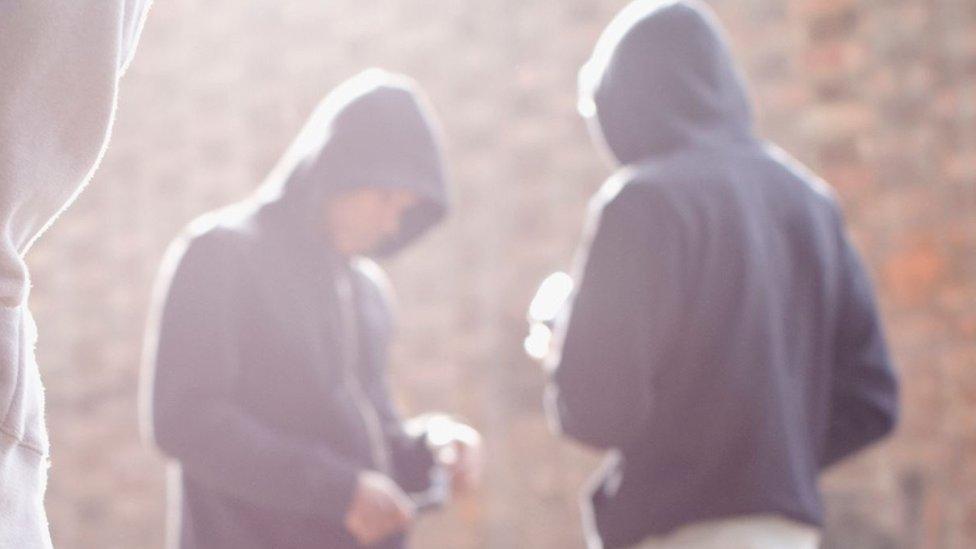Pandemic could be leading to 'cuckooing' increase, charity warns
- Published

Drug dealers can exploit people's addiction and then take over their home
The pandemic could be leading to an increase in the exploitation of vulnerable people by gangs in the North East in a practice known as "cuckooing", a charity has warned.
It involves dealers taking over a person's home as a base to sell drugs.
The charity Changing Lives said people who had lost their jobs as a result of the pandemic risked getting drawn in.
Police say its complex nature makes it difficult to determine numbers but "several" investigations were ongoing.
One victim has spoken to Radio Newcastle about the devastating effect it had on his life.
Daniel, not his real name, said he became involved when dealers exploited his addiction and offered him cash and drugs to set up a cannabis farm in his home.
'Using me'
He said: "They act like your friends, but they was [sic] getting everything, I was risking my freedom, my tenancy, my health, my sanity.
"Everything was done to better their pockets, they didn't care about me, they was [sic] just using me."
As he got further into debt and more involved with the criminals, it got to the point where he tried to take his own life.
"I was waking up every day... hurting myself and almost getting sectioned," he said.
It was Changing Lives that helped him move on and rebuild his life.
Ian Fiddes, from the charity, said: "With people losing their jobs due to covid, they are at risk of getting drawn in.
"Once people get in a little bit, before they know it it's developed into something far more serious.
"But they can get help, they just need to tell someone what's happening."
'Automatically replaced'
Police forces in the region said they were working to tackle the offence, and there were "several ongoing investigations".
Ian Randell, from the National County Lines Coordination Centre, which is based at the North East Regional Special Operations Unit, said the complex nature of cuckooing made it hard to identify how common it was.
He said: "Because there are so many people working it in so many different ways [the exact numbers] are hard to capture.
"I think the difficulty is that taking one person out, they are automatically replaced with another person."
He urged people to report any information to the police, the more detailed the better, to give an idea of what is going on and where to target their resources.
"There is a lot of good work going on in this area to address it", he added.

Follow BBC North East & Cumbria on Twitter, external, Facebook, external and Instagram, external. Send your story ideas to northeastandcumbria@bbc.co.uk, external.